I am trying to send a file over a socket by reading one character at a time until the buffer (an array of chars) is full, sending it, then repeating until the end of the file. But for some reason feof becomes true before the file ends (I believe it might be when the buffer array is full).
int c;
int end_loop = 1;
char to_send[BUFFER_LENGTH];
while (end_loop == 1) { //For the entire file
printf("creating next data\n");
bzero(to_send, BUFFER_LENGTH);
for (int i = 0; i < BUFFER_LENGTH - 1; i++) { // read data from file until buffer full or EOF
c = fgetc(f);
if (c == EOF) { // If end of file break loop
printf("EOF\n");
end_loop = 0;
break;
}
to_send[i] = c;
}
for (int i = 0; i < strlen(to_send); i++) {
printf("%c", to_send[i]);
}
n = write(sockfd, to_send, strlen(to_send));
if (n < 0) {
perror("ERROR writing to socket");
exit(1);
}
}
n = write(sockfd, "EOF", 3);
if (n < 0) {
perror("ERROR writing to socket\n");
exit(1);
}
This is the output from a simple file

It is possible feof is not the issue, since the code seems to keep looping despite "EOF" being met.
EDIT: Added suggestions from the comments. Error still occurs.